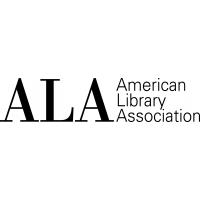Most college students are novice researchers for whom Google is the option of first resort. But the information provided by the surface websites usually found this way often lacks substance and is of questionable authority. You can save your students from fruitless, random web searching with the help of this cutting-edge guide, newly updated to reflect the broad range of today’s information sources. It’s a must-have tool for first-year composition and information literacy courses, LIS collections, and graduate-level research. With this trusted resource by their side, students will
- master the skills needed to integrate quality informational sources into their writing, enabling them to craft better essays;
- receive guidance on topic selection, time management, and research planning;
- learn a five-step process for evaluating sources;
- be introduced to the fundamentals of database searching, using reference sources, and finding periodical articles, books, and websites;
- get pointers on using sources properly, with advice on citing them according to widely used documentation styles, avoiding plagiarism, quoting or paraphrasing correctly, and incorporating notes; and
- find review questions and exercises at the end of each chapter, reinforcing the concepts they have just learned.
PrefaceChapter 1: Preliminary Steps
Selecting Your Topic
Planning Your Research
Review Questions
Chapter 2: Evaluating Informational Sources
Evaluating Content: What Information Does the Source Provide?
Evaluating Authority: Who Wrote the Source?
Evaluating Dates: When Was the Source Written?
Evaluating Purpose: Why Was the Source Written?
Evaluating Quality: How Is It Written?
Review Questions
Chapter 3: Fundamentals of Database Searching
Types of Databases
Searching Databases
Review Questions
Chapter 4: Finding Periodical Articles
Types of Periodicals
Choosing Which Periodical Database to Use
Periodical Database Records
Searching Periodical Databases
Accessing the Full Text
Review Questions
Chapter 5: Finding Books
Searching the Online Catalog
Understanding the Classification Systems
E-books
Review Questions
Chapter 6: Finding Websites
The Structure of the Internet
The Content of the Internet
Using Search Engines
Evaluating Websites
Review Questions
Chapter 7: Using Reference Sources
Encyclopedias
Dictionaries
Supporting Information
Review Questions
Chapter 8: Using the Sources You Have Found
Quoting
Paraphrasing
Summarizing
Avoiding Plagiarism
Documentation
Review Questions
Conclusion
Appendixes
- Appendix A: Answers to Review Questions
- Appendix B: “Award-Winning” Databases
- Appendix C: Classification Systems
- Appendix D: Citation Style Guide
Index
Arlene Quaratiello was the Coordinator of Library Instruction at Emerson College before she began her career as a college English instructor. For many years she taught writing courses at St. Anselm College in Manchester, NH and several other schools in the Boston area. She has written numerous essays for biographical encyclopedias as well as Rachel Carson: A Biography (a volume in the Greenwood Press Biography series).
"Offers college students invaluable guidance on approaching the research process with intentionality and locating quality resources to support their arguments ... A solid resource for beginning researchers, appropriate for high schoolers and beyond. Quaratiello’s clear explanations of searching and evaluating should serve students for years to come."— Library Journal


